Violence in northern Mali forces over 20,000 into exile
This is a summary of what was said by UNHCR spokesperson Adrian Edwards – to whom quoted text may be attributed – at today's press briefing at the Palais des Nations in Geneva.
UNHCR has deployed emergency teams to countries surrounding Mali to help meet the needs of some 20,000 people who have been forced to flee fighting in northern Mali. Most of the displaced are in Niger, Burkina Faso and Mauritania.
Fighting between rebel Tuareg groups and governmental forces in the Azawad region of northern Mali began in mid-January.
In the past three weeks, at least 10,000 people are reported to have crossed to Niger, 9,000 have found refuge in Mauritania and 3,000 in Burkina Faso.
In Niger, most of the new arrivals are from Menaka in Mali. Some have settled very close to the volatile border. Many of the new arrivals are sleeping in the open and have little access to shelter, clean water, health services, and food. People are scattered mainly in villages in Tillaberery, Ouallam, and Filingue districts, in the north of the country. Sinegodar, a village in Tillabery district, is hosting over 5,500 Malians, with one sole water point for the entire refugee and local population.
While most of those who recently fled Mali are Malians, recent arrivals in Niger also include nationals of Niger who had been living in Mali for decades. Many have been crossing the border between the two countries regularly to find grazing land for their cattle.
Local communities along the border, affected by the food crisis themselves in the Sahel, are sharing their resources with the new arrivals. The authorities have also distributed food. Four additional UNHCR staff are already in Niger and more are on their way. We plan to send aid for 10,000 people from our stockpiles in the region.
Our office in Ouagadougou, in Burkina Faso also reported the arrival of some 3,000 Malian Tuaregs following attacks on their homes and businesses in the Malian capital Bamako and in the nearby town of Kati last week. Many of the new arrivals are staying with host families in Ouagadougou and Bobo Dioulasso, 320 kilometres south-west of the capital. Other new arrivals have been reported in the north west of the country, especially near Djibo, in Soum province. An inter-agency mission, including UNHCR, is scheduled to go there by the end of the week to assess the needs of the people.
Meanwhile in Mauritania UNHCR has sent several missions to the village of Fassala, in the region of Hodh el Chargi 3km from the border with Mali, where over 9,000 people have arrived since 25th January. The mainly ethnic Tuareg Malian refugees come from the region of Léré on the other side of the border. They told UNHCR that they fled fighting between Government forces and rebel Tuareg fighters, fearing retaliation by army troops.
The Mauritanian authorities, with the support of UNHCR, are taking care of the new arrivals. Medical services are being offered by the local health clinics and water is being trucked in by the authorities. UNHCR Mauritania distributed 15-day food rations and non food items to cover the urgent needs of 5000 refugees in the refugee site of Fassala. Key needs identified are food, shelter and other basic items. UNHCR will strengthen its presence in Mauritania by fielding an emergency support team.
Fighting between the Tuareg liberation movement MNLA (Mouvement National de Liberation de l'Azawad) and governmental forces resumed on 17 January in Mali, breaking a 2009 agreement that had officially ended the Tuareg rebellion.
For further information on this topic, please contact:
- In Dakar: Helene Caux on mobile +221 77 333 12 91
- In Geneva: Fatoumata Lejeune-Kaba on mobile +41 79 249 3483
- In Geneva: Sybella Wilkes on mobile +41 79 557 9138
Related news and stories
Violence and threats by armed groups continue to displace refugees and civilians in Mali
Escalating violence leaves hundreds dead and hundreds of thousands on the move in eastern DRC
UNHCR urges greater support as violence continues unabated in Burkina Faso
Displaced people from climate frontlines raise their voices at COP27
UN warns of worsening conflict and displacement in Sahel without immediate climate action
UNHCR calls on States to refrain from forced returns of Haitians
-
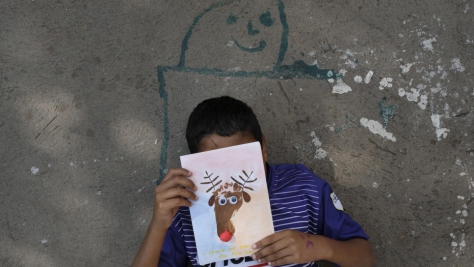
Data visualization brings to light COVID-19's threats to forcibly displaced women and children
5 Jul 2021 -
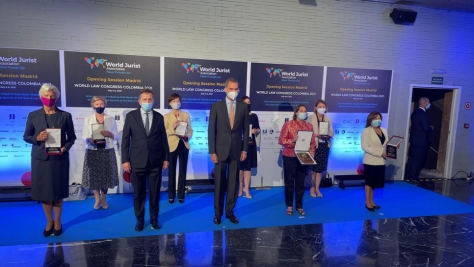
UNHCR's Assistant High Commissioner for Protection Gillian Triggs among laureates of inaugural Ruth Bader Ginsburg Medal of Honor
5 Jul 2021 -
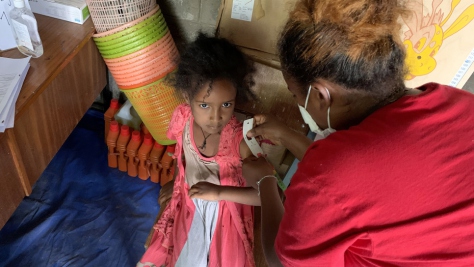
Displaced nurses provide vital health care to others displaced in Ethiopia's Tigray
5 Jul 2021 As UNHCR and other aid agencies scale up the humanitarian response in conflict-torn Tigray, local communities and the displaced are pulling together to support one another. -
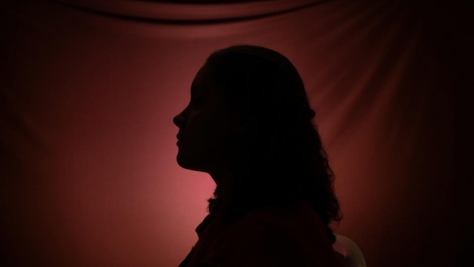
Data points to negative impacts of COVID-19 for forcibly displaced women and children
5 Jul 2021 A new data visualization shows how the pandemic has deepened the risks of violence and abuse for displaced women and children. -
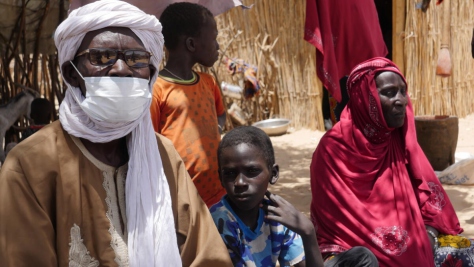
Displacement leaves families struggling to adapt in Lake Chad region
2 Jul 2021 Years after fleeing jihadist attacks, many displaced people in Chad's Lake Province still cannot return home and are trying to rebuild their lives as best as they can. -
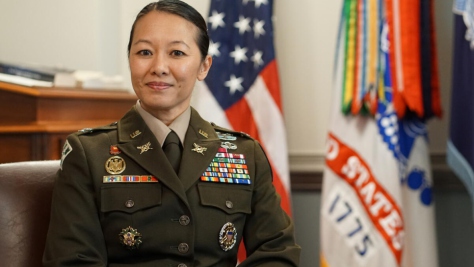
'Every little act of kindness will be remembered'
2 Jul 2021 Once a refugee of the war in Viet Nam and now a US Army Colonel, Danielle Ngo has a message for everyone on America's Independence Day. -

Age, Gender and Diversity Accountability Report 2020
2 Jul 2021 This report provides an analysis of data on the implementation of the Age, Gender and Diversity (AGD) Policy and the progress made in 2020 against the areas of engagement and 10 minimum core actions set forth by the policy. It provides examples from operations across all regions on AGD inclusive programming, accountability to affected people (AAP) and gender equality (GE). -

Every little act of kindness will be remembered
2 Jul 2021 -

Mapping of protection services for victims of trafficking and other vulnerable people on the move in the Sahel and East Africa
2 Jul 2021 The report maps out services available for asylum-seekers, refugees and migrants who have suffered abuses, including trafficking, along the migratory route in the Sahel and East Africa
